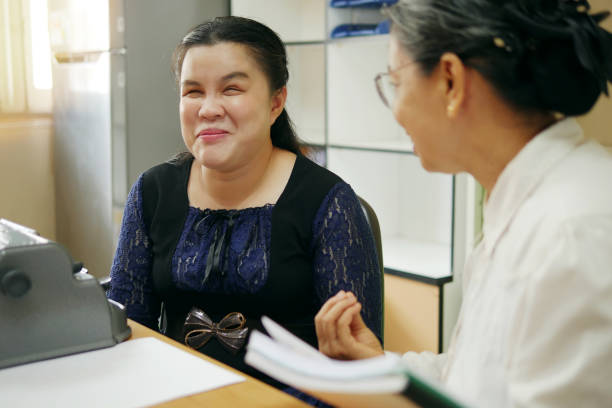1. What is Malapropism?
We all make mistakes when we speak or write English. English, like any language, lends itself to hilarious mistakes and confusion.
Thank you for reading this post, don't forget to subscribe!We’ve all had those embarrassing moments when we say one thing but mean to say something else.
But when people unintentionally misuse words in a comical way, we call the result a malapropism.
- A malapropism is the mistaken use of a word that sounds similar to the correct term.
- A malapropism is the incorrect use of a word in which you mistakenly replace the correct word with a word that sounds similar.
The word comes from the name of a character in the Irish playwright Richard Brinsley Sheridan’s play The Rivals (1775), Mrs. Malaprop, noted for her ridiculous misuse of words (such as “contagious countries” for “contiguous” ones and “allegories” on the banks of the Nile when she meant alligators).
Here are some more examples of malapropisms that illustrate the meaning

2. Examples of Malapropism
1. “I reprehend you perfectly.” Here, the correct word is “comprehend,” but “reprehend” is used instead.
2. “Oswald fired from the book suppository building.” In this case, the correct word is “depository,” but the speaker has substituted the incorrect term “suppository.”
3. “I don’t want to obliterate you to return the favor”. “Obliterate” is being used incorrectly in place of a similar-sounding word: “obligate.”
4. “A nice derangement of epitaphs.” This is an example of a malapropism from the character Mrs. Malaprop in the play The Rivals. Here, Mrs. Malaprop substitutes “derangement” for “arrangement,” and “epitaphs” for “epithets.”
5. “She was the very pineapple of politeness.” This additional example from The Rivals has Mrs. Malaprop incorrectly substituting “pineapple” for “pinnacle.”
6. “Our watch, sir, have comprehended two auspicious persons.” This is from the Shakespeare play “Much Ado About Nothing,” spoken by the character Dogberry. He means to say “apprehended two suspicious persons,” but fumbles the word choice, to comedic effect.
Sometimes these errors are Freudian slips and you say an incorrect word (which may or may not be closely associated with the word you meant to say). While some people say Freudian slips are simply slips of the tongue (with no deeper meaning), others believe that they actually reveal something deeper about you or your personality.
Note that a malapropism is not the same thing as other kinds of errors in the English language. Mondegreens, solecisms, eggcorns, and spoonerisms are other examples of errors or creative rule-breaking that can happen accidentally or be deliberately chosen.
We will try to cover Mondegreens in this article.
3. Challenge
Here are some more malapropisms (all real, not fictional!). Can you identify the misused word?
- If you wish to submit a recipe for publication in the cookbook, please include a short antidote concerning it.
- In Venice, the people travel around the canals in gorgonzolas.
- The mountain is named for the Reverend Starr King, who was an invertebrate climber.
- I took up aerobics to help maintain my well-propositioned figure.
- The only sure-fire way to avoid teenage pregnancy is through obstinance.
- Senators are chosen as committee chairmen on the basis of senility.
- The fun and excitement of childhood are nothing compared to the fun and excitement of adultery.
- The marriage was consummated on the altar.
- Too many Americans lead a sedimentary life.
- He died interstate.
- The food in our cafeteria is so bad it’s not fit for human constipation.
- Who do you think you are, some kind of hexagon of virtue?
- We have to deal seriously with this offense as a detergent to others.
- Medieval cathedrals were supported by flying buttocks
Now let’s shift to Mondegreens
4. What is Mondegreens?
Mondegreens are in a sense the opposite of malapropisms; they result from something being misheard rather than missaid. ( Source: Fun-with-words)
Here are a few misheard phrases and song lyrics (the first three are well-known examples):
- “Excuse me while I kiss this guy.”
“Excuse me while I kiss the sky.”
Purple Haze, Jimi Hendrix - “There’s a bathroom on the right.”
“There’s a bad moon on the rise.”
Bad Moon Rising, Creedence Clearwater - “The girl with colitis goes by.”
“The girl with kaleidoscope eyes.”
Lucy in the Sky With Diamonds, The Beatles
- “Crimean River.”
“Cry Me a River.”
Cry Me a River, Julie London - “Bring me an iron lung.”
“Bring me a higher love.”
Higher Love, Steve Winwood - “Mama don’t take my clothes ‘n’ throw ’em away.”
“Mama don’t take my Kodachrome away.”
Kodachrome, Paul Simon - “You make the best homemade stew around.”
“You make the best of what’s still around.”
When The World Is Running Down, The Police
- “Very close veins.”
“Varicose veins.” - “Paper View TV.”
“Pay-per-view TV.”







